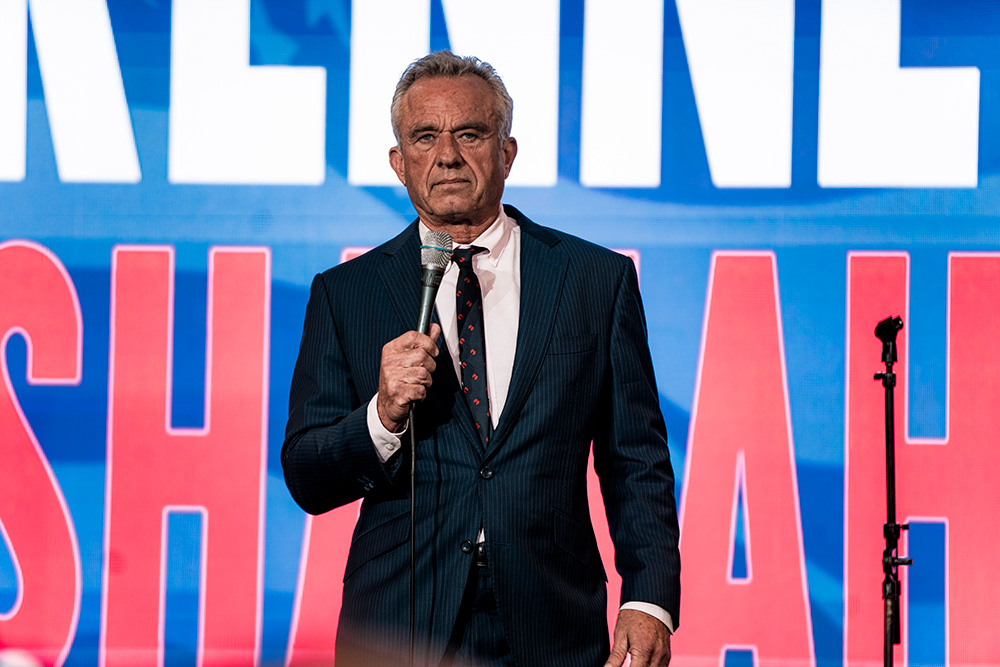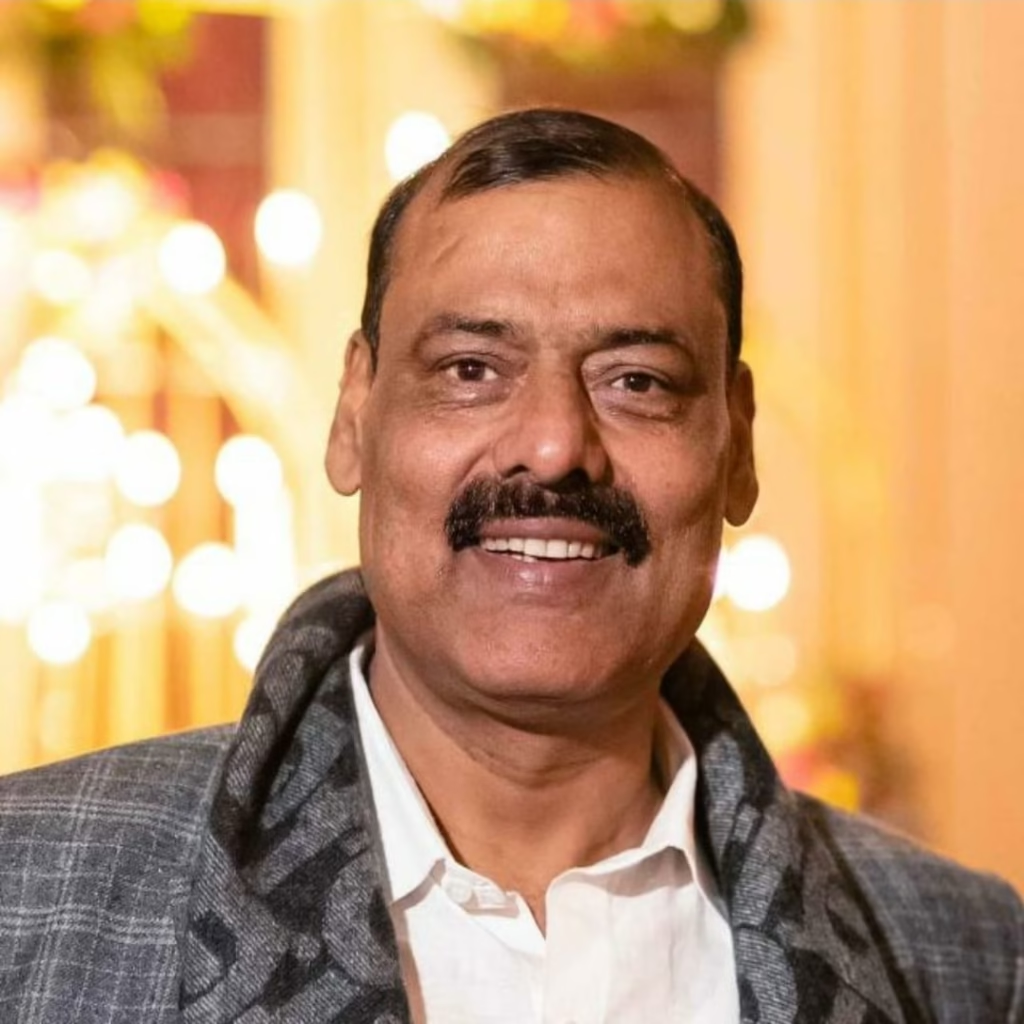Society
RFK Jr. at HHS: A health reformer or a risk to public safety?
Robert f. Kennedy jr. And the future of US Health policy: A closer look at the implications of his anti-vaccine stance and food reform efforts

The recent announcement that Robert F. Kennedy (RFK) Jr. has been tapped to head the U.S. Department of Health and Human Services (HHS) under the second term of President Donald Trump has sent shockwaves through the health and scientific communities. Kennedy, a well-known anti-vaccine activist, has long championed controversial views about immunization, leading many to worry about the potential consequences of his appointment for public health in the United States. However, while his positions on vaccines remain contentious, his advocacy for stricter regulations on processed foods, particularly in school nutrition, raises an important debate about the intersection of health, policy, and public welfare.
The Anti-Vaccine Movement: A Dangerous Shift?
Robert F. Kennedy Jr.’s views on vaccines are well-documented and widely criticized by the medical community. He has persistently questioned the safety and efficacy of vaccines, despite overwhelming scientific consensus that vaccines are among the most effective public health tools available to prevent infectious diseases. His stance runs counter to decades of research that have demonstrated the life-saving benefits of vaccines, from eradicating smallpox to virtually eliminating polio and reducing the incidence of diseases like measles, mumps, and rubella.
This would particularly threaten vulnerable populations, such as infants, elderly individuals…
Kennedy’s vocal opposition to vaccine mandates, coupled with his belief that vaccines may cause harm—particularly to children—has placed him at odds with leading medical experts and public health authorities. His appointment as the head of HHS, the agency responsible for overseeing the nation’s public health policy, could have profound consequences. If Kennedy uses this platform to advocate for policies that reduce vaccination rates or diminish the credibility of scientific research supporting vaccines, it could lead to a resurgence of preventable diseases. This would particularly threaten vulnerable populations, such as infants, elderly individuals, and those with compromised immune systems, who rely on herd immunity to stay safe.
In the context of the ongoing global health challenges, including the COVID-19 pandemic, Kennedy’s stance on vaccines poses a potential risk to efforts aimed at preventing future outbreaks. If the U.S. were to experience another pandemic under his leadership, Kennedy’s approach to vaccines could undermine the country’s ability to respond effectively, endangering millions of lives.
A Silver Lining: Food Reform and Child Nutrition
While Kennedy’s anti-vaccine rhetoric remains a cause for concern, his stance on food policy, particularly regarding the food served in schools, offers a more promising avenue for public health reform. Kennedy has been a vocal critic of the processed food industry, particularly its influence on school lunches. He has argued that the widespread consumption of unhealthy, highly processed foods is a key factor driving the obesity and chronic disease epidemics in the United States, particularly among children.
The connection between poor nutrition and health outcomes is well-established. Diets high in processed foods, sugars, and unhealthy fats contribute to a range of health issues, from obesity and diabetes to heart disease and hypertension. The alarming rise in childhood obesity rates has prompted calls for more stringent regulations around the food products served in schools, where many children receive a significant portion of their daily calories. Kennedy’s push for healthier school meals, free from processed foods and filled with nutritious alternatives, is a policy that aligns with the recommendations of many nutrition experts.
Kennedy’s calls for food reform could provide a much-needed counterbalance to the harmful influence of corporate interests in the food industry
While his anti-vaccine views may overshadow his other positions, Kennedy’s stance on food reform is one that could benefit the health of future generations. Improving the quality of food served to schoolchildren would not only help combat rising rates of childhood obesity but could also reduce the long-term burden of chronic diseases, ultimately easing the strain on the nation’s healthcare system.
A Complex Legacy and Uncertain Future
The nomination of Robert F. Kennedy Jr. to head HHS is emblematic of the broader tensions within the Trump administration, which has frequently positioned itself against the scientific establishment. Kennedy’s promotion, alongside other controversial picks, suggests a continuation of the president’s desire to reshape key federal agencies in line with his ideological and political views, often at odds with established science and public health expertise.
However, Kennedy’s anti-establishment persona also resonates with a segment of the American public that feels disconnected from traditional political elites and the institutions that govern public health. His views on vaccines may appeal to those who distrust government-mandated health policies, even if those policies are grounded in extensive scientific research.
At the same time, Kennedy’s calls for food reform could provide a much-needed counterbalance to the harmful influence of corporate interests in the food industry. If he were to focus on improving the nutritional standards of school meals and advocating for greater transparency in food labeling, he could help shift the national conversation toward healthier diets and better public health outcomes.
A Balancing Act for Public Health
As Robert F. Kennedy Jr. takes on the responsibility of leading the U.S. Department of Health and Human Services, the country faces a complex and uncertain future. While his stance on vaccines raises significant concerns, his advocacy for healthier food policies could offer valuable solutions to the growing public health crisis of diet-related diseases. In navigating his dual legacy of promoting vaccine skepticism and championing food reform, Kennedy will need to balance his controversial views with the scientific evidence that underpins public health policy.
The true test of his leadership will be whether he can embrace evidence-based health practices while addressing the pressing challenges of childhood nutrition, chronic disease prevention, and the fight against harmful food industries. If Kennedy can move beyond his anti-vaccine stance and focus on fostering a healthier, more informed public, his tenure at HHS could ultimately benefit the health and well-being of Americans—especially the nation’s children, who will inherit the public health policies of today.
Society
How 2025’s Emerging Technologies Could Redefine Our Lives

In an age when algorithms help cars avoid traffic and synthetic microbes could soon deliver our medicine, the boundary between science fiction and science fact is shrinking. The World Economic Forum’s Top 10 Emerging Technologies of 2025 offers a powerful reminder that innovation is not just accelerating — it’s converging, maturing, and aligning itself to confront humanity’s most urgent challenges.
From smart cities to sustainable farming, from cutting-edge therapeutics to low-impact energy, this year’s list is more than a forecast. It’s a blueprint for a near future in which resilience and responsibility are just as crucial as raw invention.
Sensing the World Together
Imagine a city that can sense a traffic jam, redirect ambulances instantly, or coordinate drone deliveries without a hiccup. That’s the promise of collaborative sensing, a leading entry in the 2025 lineup. This technology enables vehicles, emergency services, and infrastructure to “talk” to each other in real time using a network of connected sensors — helping cities become safer, faster, and more responsive.
It’s one of several technologies on this year’s list that fall under the theme of “trust and safety in a connected world” — a trend reflecting the growing importance of reliable information, responsive systems, and secure networks in daily life.
Trust, Truth, and Invisible Watermarks
But as digital content spreads and AI-generated images become harder to distinguish from reality, how do we safeguard truth? Generative watermarking offers a promising solution. By embedding invisible tags in AI-generated media, this technology makes it easier to verify content authenticity, helping fight misinformation and deepfakes.
“The path from breakthrough research to tangible societal progress depends on transparency, collaboration, and open science,” said Frederick Fenter, Chief Executive Editor of Frontiers, in a media statement issued alongside the report. “Together with the World Economic Forum, we have once again delivered trusted, evidence-based insights on emerging technologies that will shape a better future for all.”
Rethinking Industry, Naturally
Other breakthroughs are tackling the environmental consequences of how we make things.
Green nitrogen fixation, for instance, offers a cleaner way to produce fertilizers — traditionally one of agriculture’s biggest polluters. By using electricity instead of fossil fuels to bind nitrogen, this method could slash emissions while helping feed a growing planet.
Then there’s nanozymes — synthetic materials that mimic enzymes but are more stable, affordable, and versatile. Their potential applications range from improving diagnostics to cleaning up industrial waste, marking a shift toward smarter, greener manufacturing.
These technologies fall under the trend the report identifies as “sustainable industry redesign.”
Health Breakthroughs, From Microbes to Molecules
The 2025 report also spotlights next-generation biotechnologies for health, a category that includes some of the most exciting and potentially transformative innovations.
Engineered living therapeutics — beneficial bacteria genetically modified to detect and treat disease from within the body — could make chronic care both cheaper and more effective.
Meanwhile, GLP-1 agonists, drugs first developed for diabetes and obesity, are now showing promise in treating Alzheimer’s and Parkinson’s — diseases for which few options exist.
And with autonomous biochemical sensing, tiny wireless devices capable of monitoring environmental or health conditions 24/7 could allow early detection of pollution or disease — offering critical tools in a world facing climate stress and health inequities.
Building Smarter, Powering Cleaner
Under the theme of “energy and material integration”, the report also identifies new approaches to building and powering the future.
Structural battery composites, for example, are materials that can both carry loads and store energy. Used in vehicles and aircraft, they could lighten the load — quite literally — for electric transportation.
Osmotic power systems offer another intriguing frontier: by harnessing the energy released when freshwater and saltwater mix, they provide a low-impact, consistent power source suited to estuaries and coastal areas.
And as global electricity demand climbs — especially with the growth of AI, data centers, and electrification — advanced nuclear technologies are gaining renewed interest. With smaller, safer designs and new cooling systems, next-gen nuclear promises to deliver scalable zero-carbon power.
Toward a Converging Future
This year’s edition of the report emphasizes a deeper trend: technological convergence. Across domains, innovations are beginning to merge — batteries into structures, biology into computing, sensing into infrastructure. The future, it seems, will be shaped less by standalone inventions and more by integrated, systemic solutions.
“Scientific and technological breakthroughs are advancing rapidly, even as the global environment for innovation grows more complex,” said Jeremy Jurgens, Managing Director of the World Economic Forum, in the WEF’s official media release.
“The research provides top global leaders with a clear view of which technologies are approaching readiness, how they could solve the world’s pressing problems and what’s required to bring them to scale responsibly,” he added.
Beyond the Hype
Now in its 13th year, the Top 10 Emerging Technologies report has a strong track record of identifying breakthroughs poised to move from lab to life — including mRNA vaccines, flexible batteries, and CRISPR-based gene editing.
But this year’s list is not just a celebration of possibility. It’s a reminder of what’s needed to deliver impact at scale: responsible governance, sustained investment, and public trust.
As Jeremy Jurgens noted, “Breakthroughs must be supported by the right environment — transparent, collaborative, and scalable — if they are to benefit society at large.”
In a time of climate stress, digital overload, and health inequity, these ten technologies offer something rare: a credible roadmap to a better future — not decades away, but just around the corner.
Society
Shukla is now India’s first astronaut in decades to visit outer space
Shubhanshu Shukla, the mission pilot, has now become the first Indian astronaut in space in decades; only second to fellow air force veteran and group captain, Rakesh Sharma during the Soyuz mission in 1984.

After innumerable launch delays, the private human spaceflight mission Axiom-4, finally soared to space at about 1200 hours Indian Standard Time (IST) from Nasa’s Kennedy Space Center, Florida. The Crew Dragon capsule, carrying an international crew of four astronauts, set sail for the International Space Station (ISS) and on schedule to dock with the station tomorrow at approximately 1500 hours IST.
Shubhanshu Shukla, a group captain with the Indian air force, and the mission pilot, has now become the first Indian astronaut to visit space in decades. He’s just the second Indian, following Rakesh Sharma, a squadron leader with the air force then (but retired as wing commander) during 1984’s Soyuz T-11 mission.
Accompanying Shukla on Axiom-4 are mission specialists, Tibor Kapu and Sławosz Uznański-Wiśniewski, from Hungary and Poland respectively. The duo, like Shukla, are the first astronauts in decades from their countries. Meanwhile, Peggy Whitson, the mission commander is a veteran American astronaut who’s embarked upon her second private spaceflight mission.
Upon arriving in space, Shukla addressed the Indian audience during the live broadcast, explaining how the mission marks the beginning of the Indian human spaceflight program. He espoused symbolism invoking the colors of the national flag on his shoulder patch.
“The tricolor embossed on my shoulders tells me that I am with all of you,” he said in his native Hindi. “I want all of you to be part of this journey. Your chest, too, should swell with pride … Together, let’s initiate India’s Human Space Programme. Jai Hind! Jai Bharat!”
The Indian Space Research Organization (ISRO) had kickstarted the human spaceflight program about two decades ago to mark Indian presence in space. In February 2024, Shukla was amongst four Indian candidate astronauts handpicked to partake in the country’s first crewed mission, Gaganyaan. As such in preparation, as well ahead of the Axiom-4 mission, Shukla had enrolled for a master’s degree in aerospace engineering from the Indian Institute of Science, Bengaluru.
Besides the obvious spectacle the Axiom-4 launch bears for India to expand its space program efforts, there is a space science component to this mission this time. India has filled in slots for a series of seven experiments designed by central institutions.
“He is not going up there alone,” Alok Kumar, a physicist and one of the principal investigators of these experiments, said in an interview to The Print’s Soumya Pillai earlier today. He put these experiments in context of India’s plan to consolidate outer space as a habitat to plan and conduct scientific experiments, to set up base in orbit for the long-term, or even in the moon. Only last year, ISRO announced plans to set up Bharatiya Antariksh Station, at low-earth orbit in 2028.
The microgravity experiments will buzz interest among the scientific community, hoping to make an impact. And Shukla will lead investigations into them, donning a scientist’s lab coat as it were. In fact, he already has a research paper under his belt, with his name listed as coauthor. Despite that, he hasn’t received his masters’ degree yet. Dr. Kumar, who also happens to be Shukla’s thesis advisor at IISc, revealed in The Print interview, the latter ‘s dissertation is still incomplete. He only wished Shukla would return and complete it. “I won’t let him off the hook,” he said lightheartedly.
Earth
In ancient India, mushy earth made for perfume scent
Kannauj, a city in the Indian state of Uttar Pradesh, offers a sustainable alternative in producing perfumes using traditional modes of distillation.

A sweet scent typically lingers around in the air at Kannauj, an ancient city in India’s most populous state of Uttar Pradesh. It’s an imprint of the countless occasions when it had rained, of roses that bloomed at dawn, and of sandalwood trees that once breathed centuries of calm.. Though mushy smells are not unique to Kannauj, the city utilized traditional distillation methods to make perfume out of these earthly scents.
Kannauj has had a longstanding tradition in perfume-making since four centuries ago. The city, colloquially known as the country’s ancient perfume capital, still uses rustic copper stills, wood-fired ovens, and bamboo pipes leading to sandalwood oil-filled vessels, or attar as it is colloquially known, to make their perfume. Though it gives a pre-industrial look, a closer peek would reveal an ecosystem of complex thermal regulation, plant chemistry, sustainability science, and hydro-distillation chemistry at work.
When synthetically-made but sustainable perfumes, and AI-generated ones share the spotlight today, Kannauj’s tryst with perfumes offer an alternative, sustainable model in traditional distillation, which is inherently low-carbon, zero-waste, and follow principles of a circular economy; all in alignment with sustainable development goals.
Traditional perfume-making is naturally sustainable
In industrial processing, hydro-distillation is a commonly done to separate substances with different boiling points. Heating the liquids produce vapors, which can later be liquefied in a separate chamber. Perfumers in Kannauj follow the same practice, except it promises to be more sustainable with the copper stills, a process colloquially known as dheg-bhakpa hydro-distillation.
There’s no alcohol or synthetic agents in use. Instead, they heat up raw botanicals – such as roses, vetiver roots, jasmine, or even sunbaked clay – to precise temperatures well short of burning, thereby producing fragrant vapor. The vapors are then guided into cooling chambers, where they condense and bond with a natural fixative, often sandalwood oil. Plant residue is the only byproduct, which finds use as organic compost to cultivate another generation of crops.

Trapping earthly scent to make perfume
In the past five years, Kannauj’s veteran perfumers noticed a quiet, but steady shift in their timely harvest and produce. Rose harvests have moved earlier by weeks. Vetiver roots grow shallower due to erratic rainfall. Jasmine yields are fluctuating wildly. The local Ganges river, which influences humidity levels essential for distillation timing, is no longer as predictable. For an entire natural aromatic economy built on seasonal synchrony, this uncertainty has rung alarm bells.
“The scent of a flower depends not just on the flower itself,” Vipin Dixit, a third-generation attar-maker whose family has distilled fragrance for decades, said to EdPublica.
“It depends on the weather the night before, on the heat at sunrise, on the moisture in the air. Even the soil has a scent-memory.”

As a result, perfumers in Kannauj have begun to adapt, applying traditional wisdom through a modern scientific lens. Local distillers are now working with botanists and environmental scientists to study soil microbiomes, measure scent compounds using chromatography, and develop community-based rainwater harvesting to ensure sustainable crop health.
One of the most surprising innovations is trapping petrichor — the scent of first rain — through earth attars. Clay is baked during extreme heat waves, mimicking summer conditions, then distilled to trap the scent of rain hitting dry soil. This aroma, called mitti attar, is one of the few scents in the world created from an environmental phenomenon; and not a flower.
At a time when the world is scrambling to save biodiversity, the humble attar may become a template for green chemistry — one that doesn’t just preserve scent, but also restores the relationship between science, nature, and soul.
-

 Society4 months ago
Society4 months agoStarliner crew challenge rhetoric, says they were never “stranded”
-

 Space & Physics3 months ago
Space & Physics3 months agoCould dark energy be a trick played by time?
-

 Earth4 months ago
Earth4 months agoHow IIT Kanpur is Paving the Way for a Solar-Powered Future in India’s Energy Transition
-

 Space & Physics3 months ago
Space & Physics3 months agoSunita Williams aged less in space due to time dilation
-

 Learning & Teaching4 months ago
Learning & Teaching4 months agoCanine Cognitive Abilities: Memory, Intelligence, and Human Interaction
-

 Earth2 months ago
Earth2 months ago122 Forests, 3.2 Million Trees: How One Man Built the World’s Largest Miyawaki Forest
-

 Women In Science3 months ago
Women In Science3 months agoNeena Gupta: Shaping the Future of Algebraic Geometry
-

 Society5 months ago
Society5 months agoSustainable Farming: The Microgreens Model from Kerala, South India












